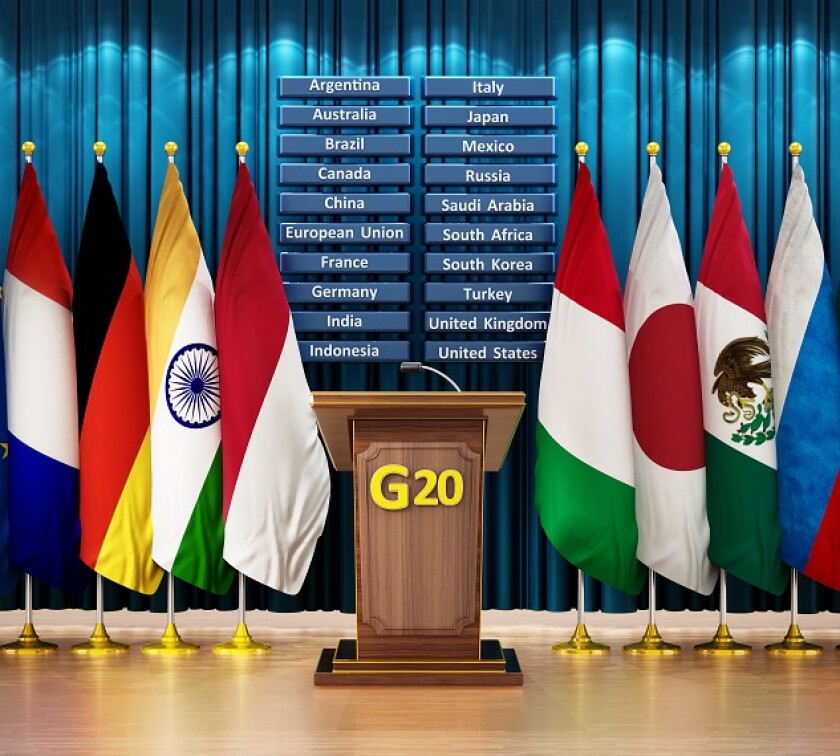The G20 endorsed the OECD Inclusive Framework’s (IF) two-pillar proposal of a 15% global minimum tax rate and a redistribution of 25% of the largest companies’ residual profits to market jurisdictions.
The US Secretary of the Treasury Janet Yellen said: “Every G20 head of state endorsed a historic agreement on new international tax rules, including a global minimum tax that will end the damaging race to the bottom on corporate taxation."
The deal also includes tax credits for companies facing digital services taxes (DSTs) in advance of the pillar one implementation. This was a requirement from the US to agree to the framework for reallocating residual profit under pillar one.
The agreement to introduce a floor on tax competition and a system to redistribute corporate profits across more than 130 countries is significant. Yet several stakeholders said the solution disadvantages around 70 other countries outside the IF, as well as some developing countries within the IF too.
Shortcomings of the global tax deal
Several government leaders from emerging economies have suggested that the 25% limit on the redistribution of residual profits is not high enough. The G24 Working Group on Tax Policy and International Tax Cooperation called for at least 30% of multinationals’ non-routine profits to be reallocated to market jurisdictions to provide meaningful revenue for developing countries.
Nigeria’s Minister of Finance Zainab Ahmed said in September that the agreement has not met the objective of a “fair deal”. Nigeria has still not joined the agreement.
“[IF] member countries including Argentina have led criticism of the deal as both unfair and ineffectual against corporate tax abuse,” said Alex Cobham, chief executive at the Tax Justice Network, on negotiations at the G20 about the OECD’s two-pillar solution.
“Yet it was the G20 that gave the OECD the mandate to host negotiations, despite widespread concerns that the OECD – a club of rich countries – would be unable to reflect the views of non-members,” added Cobham.
Lawrence Summers, professor at Harvard University and former secretary of the US Treasury, agreed that countries outside of the agreement will face consequences.
“Their own multinational companies will lose the ability to fully deduct expenses when they operate in countries that have joined the agreement,” said Summers. “This strong backstop strengthens the incentives to join the regime and can eliminate the advantages of not doing so.”
The shortcomings of the OECD’s two-pillar solution may lead to the UN taking over future iterations of the project to widen the scope of the rules more equitably for developing countries. The UN has already begun work, with the adoption of Article 12B in its model tax rules for treaties that highlights efforts to address limitations under pillar one’s profit reallocation.
The 70 countries outside the IF, and the OECD’s two-pillar solution, might instead opt for Article 12B.
While tax reform through the OECD’s two-pillar solution reached a definitive result at the G20 Summit, other top issues for G20 leaders including climate change fell short of any concrete consensus. Some stakeholders criticised the conference for ‘lacklustre’ results.
Climate change discussions
Climate change tax policies were also at the forefront of the agenda for leaders at the G20 Summit on October 31, as their economies emit most of the world’s carbon emissions. Leaders, for the first time, acknowledged carbon pricing mechanisms and incentives as key tools against climate change.
Including carbon pricing mechanisms in G20 discussions matches the timeline for the IMF calling on countries to set a floor on carbon pricing. However, G20 leaders fell short on committing to net zero emissions by 2050 at the summit. Reaching net zero emissions will likely require the use of a global carbon tax floor to ensure that a deadline in 2050 can work.
French President Emmanuel Macron said the G20 Summit was set up to ensure the success of the UN’s Climate Change conference (COP26) from October 31 to November 12, but "nothing is ever written before a COP". Many tax professionals told ITR that they expect little to nothing to be decided on carbon taxation at COP26.
“We did not see a global carbon tax, as expected,” said one head of tax at a consumer goods company in the US about the G20 Summit. “We may see a firmer commitment to reach net zero at COP26 though.”
After mixed outcomes from the G20 Summit, the UN’s climate conference might lead to greater harmonisation on carbon pricing, but a full consensus is unlikely. The outcome from the G20 remains a commitment to set the global minimum tax rate at 15% and reallocation threshold of 25%, adding another layer of certainty for taxpayers to prepare for tax reforms by 2023.











